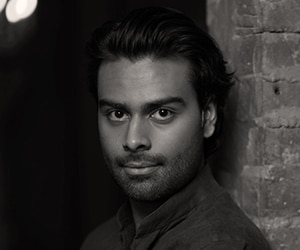The wealth built in emerging markets is transforming the private banking sector, with the needs and desires of the emerging-markets ultra-rich changing as rapidly as the markets themselves.

Once upon a time, technology, culture and capital flowed from the developed world to the developing. That time is passing quickly. Emerging markets rival the traditional metropoles in advances from 5G communications to electric vehicles—and in the wealth-creation that results. Asia has become the driver of global economic growth, while voters in Europe and North America debate who is to blame for their relative stagnation.
These megatrends are reshaping the private banking landscape in ways the industry is scrambling to keep up with. A mere 10% of high net-worth Asians’ investable assets are held by private banks, estimates Tjun Tang, a Hong Kong-based partner at Boston Consulting Group. What happens to the other 90% is the question of the era for wealth managers, and for the wealth holders, too, as they cash out of businesses and look to build durable fortunes.
Economies in the Middle East, Eastern Europe and Latin America are less dynamic than in Asia. But there are spurts of demand from wealthy individuals looking to diversify risk outside their homeland while observing the tightening global strictures around offshore deposits. Elsewhere political shifts are widening the scope for onshore wealth management. China is steadily opening its market to global banking competition, while Saudi Arabia is experiencing a big bang of sorts under reform-minded Crown Prince Mohammad bin Salman.
The emerging markets umbrella covers a huge range of financial environments, from Shanghai to Caracas. But the demands of private banking clients, and prospective clients, are evolving in a few broad directions across borders.
Total Customer Control
The days when a distracted wealthy scion signed over his trust fund to the family banker and glanced at a statement once a quarter are dwindling, probably faster in emerging markets as a greater percentage of wealth stems from ongoing business activities. The new high net-worth paradigm is closer to a corporate chieftain who plots their own course and leans on banks for discrete deal-making or investment expertise. “We’re very much on top of creating our own strategies,” says Karam Hinduja, heir to a South Asian industrial fortune and creator of the Karma Network of family offices. “We are going to the banks as a service provider.”
Middle Eastern money is also moving toward a more hands-on approach, says Sudarshan Malpani, managing director of Dubai-based Alpen Asset Advisors, which grew out of Bank Sarasin’s regional operation. “You used to see clients divide their wealth between six or eight banks without much control,” he says. “They are rapidly moving now toward family office structures and weeding out portfolios that are not performing.”
Clients might in fact do better to leave more control with their banks’ investment professionals, BCG’s Tang says. “Very few rich individuals can manage their own portfolios with maximum efficiency,” he notes. But it is hard to convince successful people of their own shortcomings.
Leading global wealth managers such as UBS, Credit Suisse or Citigroup are adapting to clients’ more sophisticated demands, integrating wealth management with investment banking to put superrich families on a par with rich institutions. But they are abandoning the merely rich in the process, raising the threshold for private banking services to anywhere from $5 million to $25 million. That opens opportunity for regional commercial banks, who have supported the emerging wealthy on their way up and are in some cases pushing private banking services down market. “Local banks are starting to wake up, and the segment from $100,000 to $1 million is what they’re really going after,” Malpani says. Asian regional banking franchises like DBS and Bank of Singapore, or South Korea’s KB Kookmin Bank, can be said to have woken up to these synergies long ago.
Offshore private banking, which still defines the industry’s image for the general public, is changing rapidly thanks to both international regulation and the shifting demands of emerging market clients. A plethora of transparency-related pacts and protocols, plus aggressive U.S. enforcement of its Foreign Account Tax Compliance Act, have tightened the noose around fortunes stashed abroad to avoid taxes or public curiosity. The burgeoning emerging-market entrepreneur class has limited use for these structures anyway, as their income derives from legitimate business and tends to be lightly taxed at home.

Hinduja, Karma Networks: We’re very much on top of creating our own strategies. |
Yet the emerging rich hunger for international diversity in their own way, whether to acquire a corporate subsidiary in a new market or send their children to Eton or Harvard. The result is voracious growth in so-called near-shore zones that serve as global investment intermediaries while observing state-of-the-art regulation. Hong Kong, not surprisingly, is the biggest of these. Assets under management in the city state jumped by nearly half in 2017 to reach $1 trillion, according to the local Securities and Futures Commission.
The emerging markets rich face rising obstacles to the free deployment of their wealth. Nation states from China and Russia to Venezuela are ratcheting up capital controls and scrutiny to try and keep money at home. Investment destinations are also growing queasy, with results ranging from blockage of Chinese tech-related acquisitions in the U.S. and Australia to New Zealand’s recent ban on foreigners buying homes. President Donald Trump’s America First rhetoric is raising wider fears about a roll-back in global citizenry. “Whether focused on import-export relations or sending their kids to school in the US or UK, I think Asian entrepreneurs are concerned about the climate,” says Jan Bellens, who leads Ernst & Young’s Asian banking practice out of Singapore.
But with the emerging markets wealthy already owning businesses and assets around the world, no one can stop the near-shore wave for now. The U.S. is expanding as a near-shore zone even as it tightens scrutiny of its own citizens’ foreign holdings. “As economic and political instability increase in Latin America, Miami is becoming ever more of a hot spot for ultra high-net-worth individuals,” says Johannes Schlotmann, a Zurich-based wealth management expert with Deloitte.
Great Expectations (For Returns)
One reason a lot of emerging-market wealth remains outside private bank coffers is that its owners have been able to reap generous returns from seemingly safe instruments elsewhere. Chinese financial companies were offering interest rates of 4% or higher on so-called wealth management products before a government crackdown started last year. Banks in the Gulf States offer a similar yield on conventional one-year deposits, Malpani says. That’s a sharp contrast to the US and Europe, where deposits or government bonds have offered derisory returns since the 2008 crash. “These deposits are considered absolutely safe for local investors,” Malpani says. “So if I show them a product that pays 3%, naturally they won’t buy it.”
Several factors are disturbing this rentier’s paradise, however. Beijing authorities have been reining in some of these wealth management products, fearing a national, multi-trillion-dollar Ponzi scheme. Emerging markets currencies, outside the oil-rich Persian Gulf, have also swooned this year. Savers in India, Brazil, Russia, and other populous markets have seen their native coin fall at least 10% against the US dollar, putting returns for the internationally-minded deep in negative territory.
Meanwhile a new generation is rising that is more global than its parents in mentality and interests. Karam Hinduja is a perfect example—educated in Switzerland and resident in New York, where he is focusing on media projects along with the family investment office. “There’s been a bit of a blend between emerging and developed markets in the younger generation,” he says. “You can see this in the international outlook of growth-stage companies everywhere.”
Private bankers will be encouraged that Hinduja sees a continued role for them in this brave new millennial world. “When it comes to day-to-day financial management, it makes sense to continue your relationship with a large institution,” he says. “You don’t need to take on the overhead.”
But tradition-bound wealth managers have plenty of work to do keeping up with the changing times. One thing is certain: The emerging-market client will play a greater role in the industry’s future than it did in its past.



